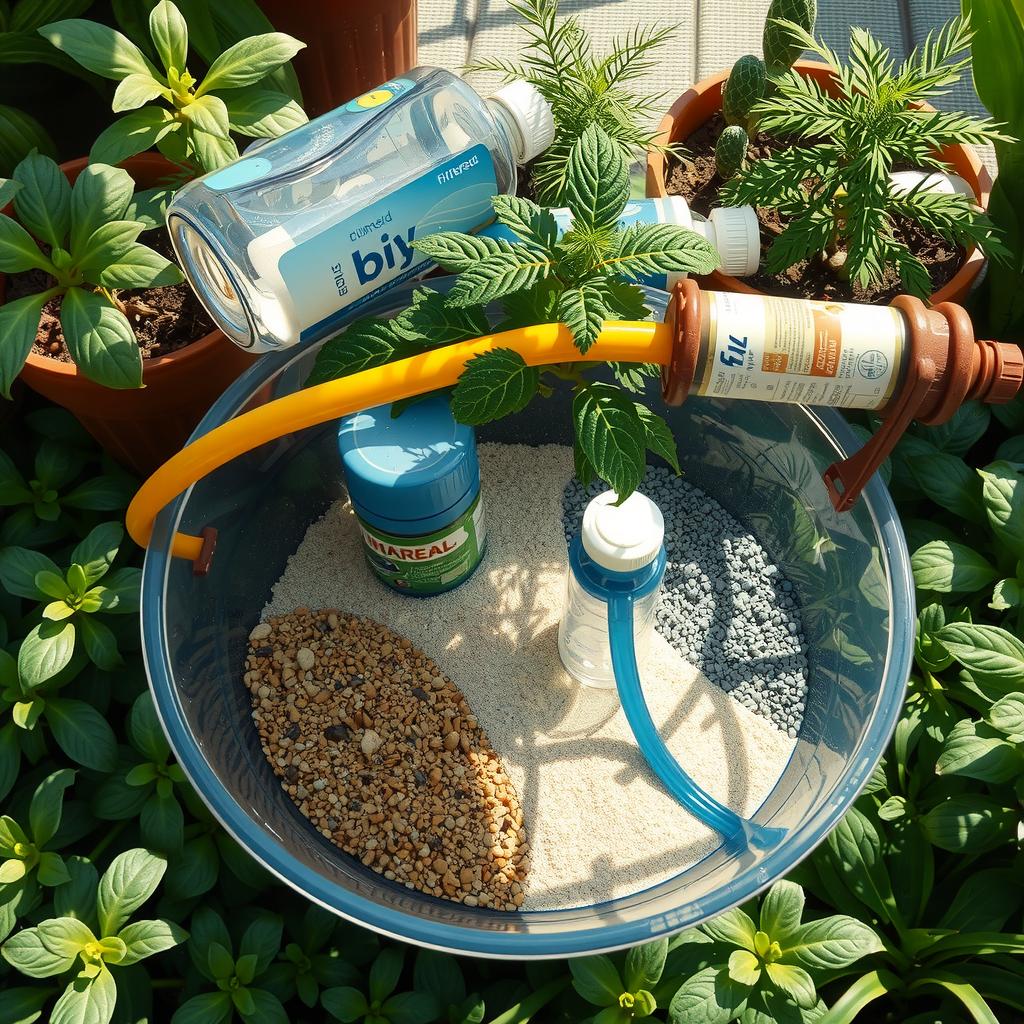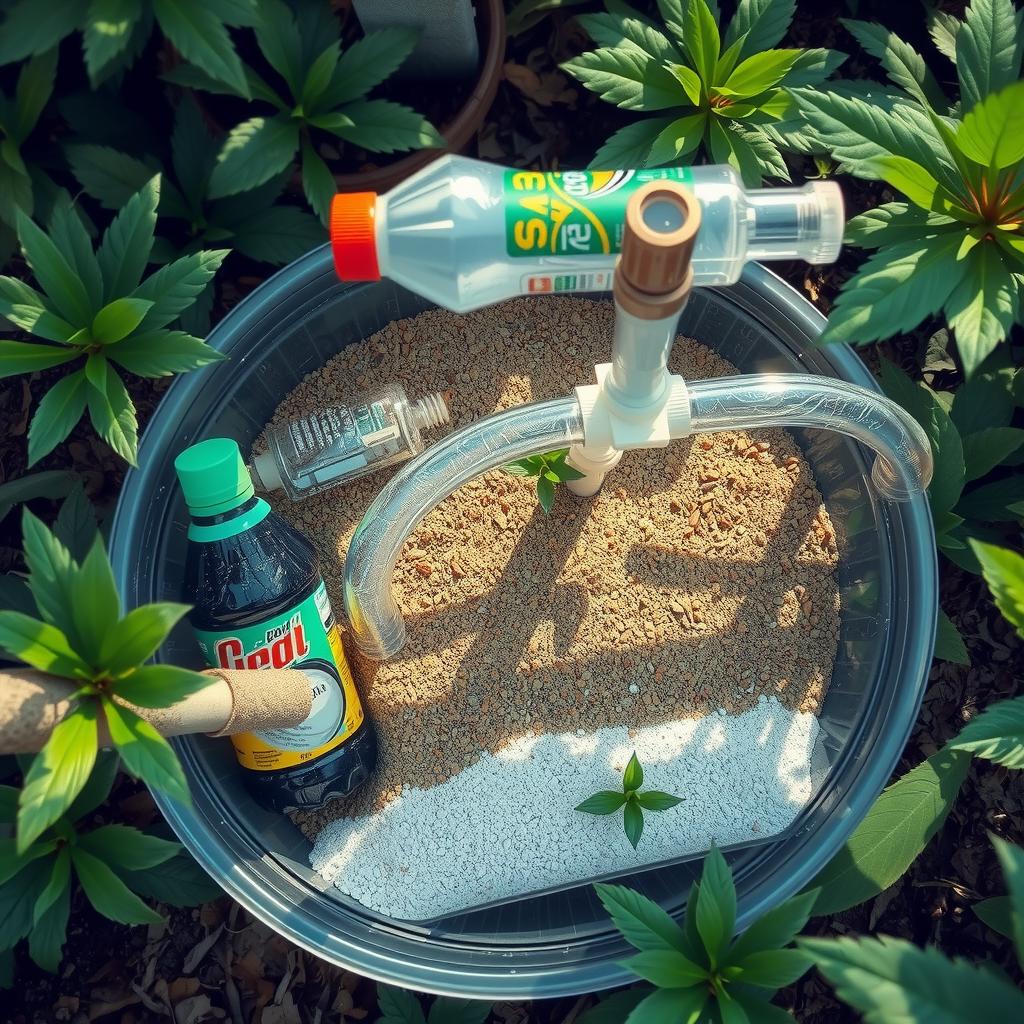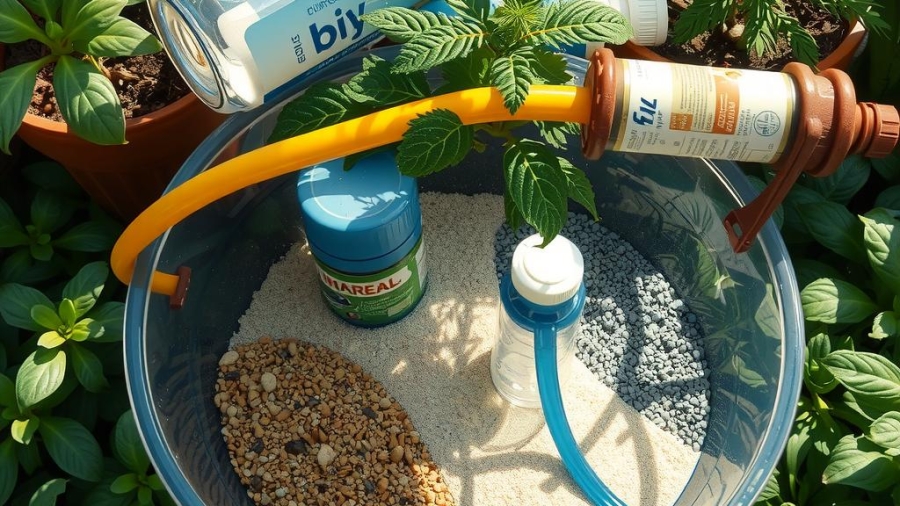In an era where water scarcity is becoming increasingly prevalent, many households are seeking innovative ways to manage their resources more efficiently. The phenomenon of greywater filtration emerges as a compelling solution, allowing homeowners to recycle water from everyday activities like washing dishes, doing laundry, and bathing. This approach not only conserves precious water but also promotes sustainable living by reducing the burden on municipal wastewater treatment systems. As environmental concerns grow and the demand for eco-friendly solutions rises, understanding how to implement a DIY filtration system using common materials becomes crucial.
Imagine transforming your home into an oasis of sustainability while simultaneously contributing to global efforts against climate change. By harnessing the power of water recycling, individuals can significantly lower their utility bills while safeguarding one of Earth’s most vital resources—water. With simple yet effective methods available at their fingertips, readers will discover that building a greywater filtration system can be both accessible and rewarding.
This article aims to guide readers through the process of creating their own efficient greywater filtering apparatus with easily sourced materials commonly found around the home or in local stores. Not only does this endeavor align with principles of sustainable living, but it also provides practical benefits that enhance any home improvement project focused on environmental stewardship.
As we delve deeper into various strategies for effective wastewater treatment, readers will gain insights into how these eco-conscious choices can lead toward a greener lifestyle without compromising comfort or convenience. From selecting appropriate containers to understanding basic filtration techniques, this exploration offers valuable knowledge aimed at fostering self-sufficiency in water use.
Join us as we unveil step-by-step instructions tailored for every skill level—transforming ambition into action and paving the way toward smarter resource management through DIY initiatives!

Key Points:
- Innovative Water Management: A simple method for homeowners to contribute to sustainable living is through the creation of a DIY greywater filtration system. This innovative solution allows individuals to reuse wastewater from sinks and washing machines, promoting effective water recycling.
- Step-by-Step Construction Guide: The article provides detailed instructions on how to build an efficient greywater filtration setup using everyday materials found around the house. By following these steps, anyone can efficiently engage in their own wastewater treatment, enhancing both sustainability and self-sufficiency.
- Community Impact and Personal Value: Engaging in home improvement projects like constructing a DIY filtration system not only increases property value but also fosters community responsibility towards environmental conservation. By adopting such eco-friendly solutions, individuals can make meaningful contributions toward creating a greener future while minimizing costs and skill requirements.

Introduction to Greywater
Exploring the Importance of Greywater in Sustainable Living
Greywater, often misunderstood as mere wastewater, plays a crucial role in promoting sustainable living. This category of water includes all used water from household activities such as bathing, laundry, and dishwashing—excluding toilet waste which is classified as blackwater. The distinction between greywater and other types of wastewater highlights its potential for recycling and reuse. By understanding the significance of greywater, individuals can implement effective greywater filtration systems that contribute to environmental sustainability.
The process of greywater filtration involves treating this seemingly unusable resource so it can be safely reused for irrigation or even flushing toilets. Such practices not only reduce the demand on municipal water supplies but also lessen the burden on sewage treatment facilities. In many urban areas, where access to clean water is increasingly challenged due to population growth and climate change effects, adopting eco-friendly solutions that include greywater systems has become essential. DIY approaches are gaining popularity among homeowners looking to create their own DIY filtration system, allowing them to reclaim valuable resources while enhancing their home improvement projects.
Incorporating these innovative methods into daily life aligns perfectly with broader concepts of sustainable living. For instance, by utilizing a simple yet effective greywater recycling setup at home, residents can significantly decrease their overall water consumption without compromising efficiency or comfort. This shift towards responsible resource management emphasizes the importance of individual actions in addressing global concerns related to freshwater scarcity.
Moreover, adapting existing plumbing systems for efficient wastewater treatment contributes not only to personal savings but also strengthens local ecosystems by reducing runoff pollution associated with traditional drainage methods. Homeowners who invest time into creating an integrated approach toward domestic management will find multiple long-term benefits—both environmentally and financially—as they minimize reliance on external water sources through conscious choices involving eco-friendly products designed specifically for these purposes.
As society continues progressing towards more sustainable practices amid growing environmental awareness, embracing affordable alternatives like greywater solutions marks an important stride forward in holistic ecological stewardship. When communities unite around principles that prioritize conservation efforts while ensuring accessibility through practical applications—instead of viewing challenges merely as hurdles—they pave pathways toward impactful transformation capable of instilling meaningful shifts within everyday lifestyles across generations ahead.
Understanding Greywater and Its Importance
Embracing Water Recycling for Sustainable Living
Greywater, defined as the relatively clean wastewater generated from baths, sinks, washing machines, and other kitchen appliances, presents a significant opportunity for water recycling. This type of water constitutes about 50-80% of residential wastewater and can be reused in various applications such as irrigation or toilet flushing if properly filtered. For eco-conscious individuals seeking to adopt sustainable living practices, building a DIY filtration system offers an accessible means to treat greywater effectively at home. By harnessing common household materials—like gravel, sand, and activated charcoal—individuals can create an efficient setup that not only conserves precious resources but also reduces the burden on municipal wastewater treatment systems. Implementing such environmentally friendly solutions enables households to lower their overall water consumption while contributing positively towards environmental conservation efforts.
Materials Needed for Your Filtration System
Essential Components for Effective Wastewater Treatment
Constructing a greywater filtration system involves gathering crucial components that facilitate effective treatment processes. The primary materials include buckets or containers (to collect greywater), gravel (for coarse filtration), sand (for fine filtration), activated charcoal (to eliminate odors and impurities), and filter fabric or mesh screens (to prevent larger particles from clogging the system). Additionally, plumbing supplies like PVC pipes may be required depending on the intended layout of the system within your garden or yard space. Each material plays a vital role; gravel acts as an initial barrier capturing larger debris while sand filters out finer particles before they reach the activated charcoal layer which absorbs toxins and unpleasant smells effectively. Homeowners can expand upon these basics by incorporating plants known for their phytoremediation capabilities—these plants naturally utilize contaminants in greywater as nutrients promoting healthier ecosystems both indoors and outdoors.
Step-by-Step Guide to Building Your Filtration System
Creating Your Own Eco-Friendly Solution with Simple Instructions
To construct your own DIY greywater filtration system, one must follow several straightforward steps ensuring functionality alongside ease of assembly. Begin by selecting an appropriate location where you would like your filtration unit installed; this could be near your garden or any area where treated water will be beneficially reused. Next, arrange two buckets: one designated for collecting incoming greywater while another serves as the collection point post-filtration process. Layer each bucket starting from bottom-to-top with gravel followed by layers of sand topped with activated charcoal—a method often referred to as layered filtering due its effectiveness in trapping various contaminants found within typical household waste streams.
After assembling these layers securely within each bucket; it is critical then to install mesh filters at either end to catch residual solids preventing them from obstructing flow through subsequent stages in your design thereby maintaining efficacy throughout operational timeframes without excessive maintenance efforts involved later-on down-the-line! Once everything is set up correctly ensure connections between all parts are watertight using silicone sealant so leaks do not occur during operation! Upon completion homeowners will find themselves equipped with both practical knowledge surrounding DIY projects plus tangible results showcasing reduced dependence upon traditional freshwater sources further emphasizing sustainability principles upheld year-round—not just seasonally!
This comprehensive guide highlights how creating functional greywater filtration systems empowers individuals toward adopting more responsible approaches concerning resource management ultimately fostering greater harmony between human habitation patterns & natural environments alike!
Enhancing System Performance While Ensuring Compliance
Optimizing Efficiency Through Sustainable Practices
In today’s world, the importance of eco-friendly solutions cannot be overstated. As individuals and businesses adopt more sustainable living practices, optimizing systems for water recycling becomes critical. One effective approach is to implement a DIY filtration system that not only enhances performance but also aligns with local regulations regarding wastewater treatment. This dual focus on efficiency and compliance ensures that one can enjoy the benefits of improved functionality while also adhering to community standards aimed at protecting the environment. For instance, implementing a greywater filtration system allows households to reuse water from baths, sinks, and washing machines for irrigation or toilet flushing—substantially reducing overall water waste.
Best Practices for System Optimization
Aligning Local Regulations with Home Improvement Initiatives
To achieve optimal performance in any system related to wastewater treatment, homeowners must incorporate best practices into their setup. Regular maintenance checks are essential; ensuring filters are clean can significantly enhance flow rates and prolong equipment lifespan. Furthermore, understanding local regulations around greywater discharge is crucial before investing in any home improvement project involving water recycling systems. Engaging with local authorities early on will clarify what is permissible within your area and help avoid costly fines or necessary retrofits later on. Documentation such as permits might be required depending on the complexity of the installation; thus keeping abreast of these requirements aids in both compliance and operational efficacy.
The Role of Eco-Friendly Solutions in Modern Systems
Merging Sustainability With Technological Advancements
The integration of technology into eco-friendly solutions has revolutionized how we approach sustainability at home or in business settings today. By utilizing modern filtration technologies alongside traditional methods, users can create robust systems that effectively manage resources without compromising environmental integrity. For example, advanced filtering membranes designed specifically for greywater applications allow for efficient purification processes while consuming less energy than older models—a win-win scenario when considering both performance enhancement and adherence to strict regulatory guidelines surrounding safe wastewater management practices. Moreover, investing in these innovative solutions fosters an environmentally conscious mindset among consumers who recognize that each small step towards sustainable living positively impacts larger ecological goals.
In conclusion, balancing efficiency improvements through advanced filtration techniques while strictly observing local laws creates an opportunity not just for enhanced personal or business resource management but also contributes meaningfully toward broader environmental conservation efforts through responsible practices like greywater recycling.
Frequently Asked Questions:
Q:What is a greywater filtration system and how does it work?
A:A greywater filtration system is designed to collect and treat wastewater from sources like sinks, showers, and washing machines for reuse in non-potable applications such as irrigation. The system typically involves filtering the water through layers of sand, gravel, or other natural materials that remove contaminants. By repurposing this previously wasted water, homeowners can engage in effective water recycling, contributing to sustainable living practices.
Q:What materials do I need to build my own DIY greywater filtration system?
A:To create an efficient DIY filtration system, common household items can be utilized. You will generally require containers for collecting greywater, filters made from sand and gravel for purification, and possibly a pump if you wish to direct the treated water for irrigation purposes. These eco-friendly solutions minimize costs while promoting environmental responsibility by enabling effective wastewater treatment right at home.
Q:Are there any regulations I should consider when setting up a greywater recycling system?
A:Yes, local regulations regarding greywater filtration systems vary significantly. It’s essential for homeowners to check their area’s guidelines on installation and usage of these systems to ensure compliance with health standards. Engaging in proper research not only ensures safety but also enhances community awareness regarding sustainable living practices—ultimately fostering a collective effort towards conservation of our planet’s resources through informed actions.
